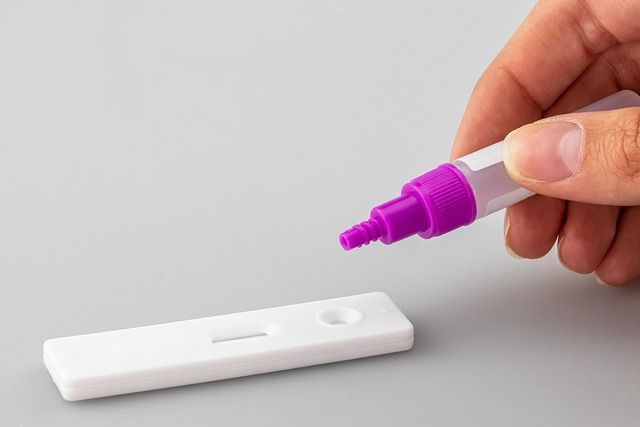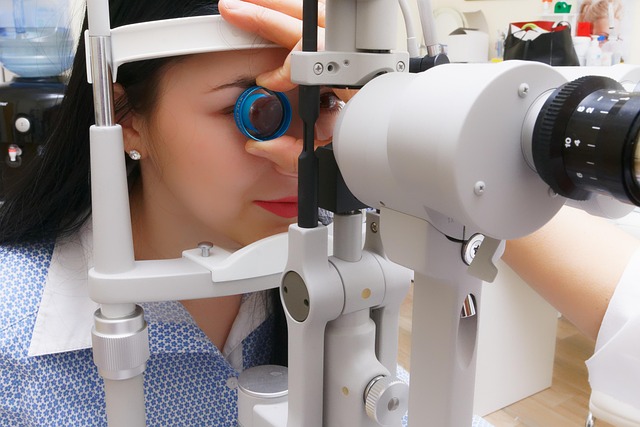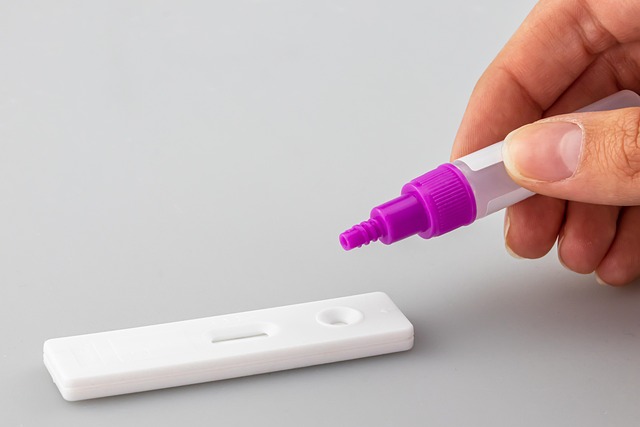Understanding thyroid test results is crucial for managing thyroid health. Comprehensive thyroid testing evaluates hormones like T3 and T4 to detect conditions like hypothyroidism or hyperthyroidism. Lifestyle adjustments, including diet and stress management, support optimal health. Hormone replacement therapy (HRT) should be considered with care, as it has side effects. Advanced comprehensive thyroid testing and interpretation by endocrinologists are essential for accurate diagnosis and personalized treatment strategies. Regular follow-up blood tests monitor progress and guide treatment decisions, especially in cases of low T3 and T4 levels.
After undergoing comprehensive thyroid testing, proper follow-up is crucial for maintaining optimal health. This article guides you through best practices, ensuring a clear understanding of test results and normal reference ranges. We explore lifestyle adjustments, timing for additional medical advice, and the importance of regular follow-ups to monitor progress. By adhering to these practices, you’ll empower yourself to navigate thyroid health effectively.
- Understanding Your Thyroid Test Results
- Defining Normal Levels and Reference Ranges
- Post-Test Lifestyle Adjustments for Optimal Health
- When to Seek Additional Medical Advice
- Monitoring Progress Through Regular Follow-ups
Understanding Your Thyroid Test Results

Understanding your thyroid test results is a crucial step in managing your thyroid health. Comprehensive thyroid testing involves evaluating various hormones and markers to assess the function of your thyroid gland. These tests can detect conditions like hypothyroidism or hyperthyroidism, which are characterized by low or high hormone levels, respectively. By interpreting these results, healthcare professionals gain valuable insights into your overall metabolic balance.
For instance, a testosterone test at home, while not directly related to thyroid testing, can provide information about hormonal imbalances. Additionally, weight gain is often associated with hypothyroidism, highlighting the importance of recognizing both primary thyroid issues and potential complications like hormone replacement therapy side effects. This holistic approach ensures that any underlying conditions are identified and treated appropriately.
Defining Normal Levels and Reference Ranges

Understanding normal thyroid levels is a crucial step in interpreting comprehensive thyroid testing results. Reference ranges vary between labs and populations, but generally, T3 (triiodothyronine) and T4 (thyroxine) hormone levels are measured to assess thyroid function. A typical reference range for T3 may be 0.27–0.52 ng/dL (nanograms per deciliter), while for T4, it’s often between 0.89–1.77 ng/dL. These ranges act as guidelines, helping healthcare professionals differentiate between healthy thyroid function and potential imbalances.
Glandular balance is of utmost importance when interpreting these results. Low T3 and T4 diagnosis, indicated by levels below the reference range, can suggest hypothyroidism, where the thyroid gland doesn’t produce enough hormones. Conversely, elevated levels could point to hyperthyroidism, a condition characterized by an overactive thyroid. Thyroid antibody test results also play a significant role in understanding these dynamics, as they can indicate autoimmune disorders like Hashimoto’s thyroiditis, which may cause chronic inflammation and disrupt glandular balance.
Post-Test Lifestyle Adjustments for Optimal Health

Post-test lifestyle adjustments play a crucial role in maintaining optimal health after comprehensive thyroid testing. For individuals aiming for balanced hormone levels, especially women, this period is essential. It involves adopting dietary habits that support thyroid function; incorporating regular physical activity to regulate metabolism; and managing stress through techniques like meditation or yoga. These practices contribute to overall well-being and ensure the body’s intricate hormonal symphony remains in harmony.
Additionally, considering a traveler’s guide to thyroid care can be valuable for those frequently on the move. It encourages staying hydrated, packing essential supplements, and being mindful of time zone changes’ potential impact on hormone rhythms. While hormone replacement therapy (HRT) may offer relief for some, it’s important to be aware of its side effects and consult healthcare professionals for personalized guidance.
When to Seek Additional Medical Advice

If your comprehensive thyroid testing reveals abnormal results or if you experience persistent symptoms related to thyroid dysfunction after the initial assessment, it’s crucial to seek additional medical advice promptly. This is especially true for individuals considering a testosterone test at home or those engaged in high-performance sports, where optimal thyroid function is paramount (thyroid testing for athletes). An endocrinologist or healthcare provider specializing in endocrine disorders can help interpret the complex interactions of thyroid hormones and their impact on overall health.
They will carefully review your test results, taking into account various factors such as reference ranges, recent lifestyle changes, medications, and other medical conditions. Through a comprehensive approach, including further testing if necessary, they can pinpoint the underlying cause of thyroid abnormalities and tailor a treatment plan to restore balance, whether that involves medication adjustments, dietary modifications, or other interventions.
Monitoring Progress Through Regular Follow-ups

Regular follow-ups are an essential part of comprehensive thyroid testing. They allow healthcare professionals to monitor a patient’s progress and adjust treatment plans as needed, especially in cases of low T3 and T4 diagnosis. By scheduling routine checkups, patients can ensure their hormone replacement therapy is effective and manage any potential side effects promptly.
During these follow-ups, blood tests are often conducted to reevaluate thyroid hormone levels (T3 and T4) and assess the overall health of the thyroid gland. This proactive approach helps in identifying any fluctuations or anomalies early on, enabling medical experts to make informed decisions regarding further treatment or adjustments to the current hormone replacement therapy regimen. It’s crucial to consult a healthcare provider about when to schedule these checkups, as individual needs may vary, but generally, patients with a history of thyroid disorders should consider getting a thyroid checkup at regular intervals.
Comprehensive thyroid testing requires a multifaceted approach to ensure optimal health. Understanding your test results, knowing normal reference ranges, and making lifestyle adjustments are key steps. Regular follow-ups allow for continuous monitoring, enabling early intervention if needed. Remember, seeking additional medical advice when necessary is crucial for managing thyroid conditions effectively. By combining these best practices, individuals can navigate their thyroid health journey with confidence and peace of mind.
